|
I’ve recently learned a new phrase, "moral narcissism", from Arnold Kling, who seems to have gotten it from Roger Simon. It’s explained as such, If your intentions are good, if they conform to the general received values of your friends, family, and co-workers, what a person of your class and social milieu is supposed to think, everything is fine. You are that “good” person. You are ratified. You can do anything you wish. It doesn’t matter in the slightest what the results of those ideas and beliefs are, or how society, the country, and in some cases, the world suffers from them. It doesn’t matter that they misfire completely, cause terror attacks, illness, death, riots in the inner city, or national bankruptcy. You will be applauded and approved of. After reading the above, I happened to notice several memes on Facebook within a couple days. They are the three featured in this post, one above and the two below. I have no issue with any of these memes or the teachers that liked or shared them on Facebook. One of them was from my wife! I know the "intentions were good" and that "they conform to the general received values of friends, family, and co-workers, and what a person of their class and social milieu is supposed to think". To be totally clear, I agree with all three. However, the same article referenced above went on to point out that, Moral narcissism is the ultimate “Get out of jail free” card in a real-life Monopoly game. No matter what you do, if you have the right opinions, if you say the right things to the right people, you’re exempt from punishment. People will remember your pronouncements, not your actions. And that is the problem. These memes allow us teachers to "get out of jail free". We (mostly) all buy into the idea that school does "produce people who are unable to distinguish what is worth reading", that we should "never limit questions", and that there is a major difference between the "learner and learning".
However, by simply pronouncing those beliefs and getting a pat on the back from fellow teachers and educators, we don't have to do the hard work of taking action and suffering the possible consequences. We aren't punished or held accountable by each other when we don't produce critical thinkers able to distinguish what is valuable and important. We aren't punished or held accountable by each other when we do limit questions and curiosity because we need to stay on track with the mandated curriculum or we won't finish in time. We aren't punished or held accountable by each other when we do focus on the "learning" and not the fact that the student isn't interested, is stressed, or really does want to walk down a different path entirely besides the societally approved high school, college, job, marriage, house route of success. Teachers are great people. They work hard. They care. They want the best for their students. None of that necessarily implies they do what is needed for the students to lead rich, fulfilled lives both today and in the future. Teachers must change. Perhaps we can start by recognizing our own collective moral narcissism.
2 Comments
Many people are concerned with the development of superintelligent AI. Elon Musk above is one of them. These concerns have been laid out in great detail by Nick Bostrom in his book Superintelligence. I highly recommend it. Sam Harris has also given a great TED Talk on the reasons for concern. Every concern I’ve seen stated to date is a concern for humanity’s sake. All are worried about the threat to our existence that AI poses and the suffering that could result is very real. I hear those concerns and take them as genuine and something we should all be thinking hard about. Harris’ video above makes that point clearly. I think there is another reason to be concerned though and that is for the ethical dilemma the creation of superintelligent AI creates in relation to the potential suffering of the AI itself. This concern follows directly from rejectionism and the set up to understand it is eloquently explained by Coates, Humans suffer more than other animals for a number of reasons. Animals have few needs and when these are met they are contented. Moreover they live in the present and have no sense of time - no sense of the past or the future and above all no anticipation of death. Not so with man. First, our desires and wants are far greater and therefore our disappointments are keener. Whilst we are capable of enjoying many more pleasures than the animals – ranging from simple conversation and laughter to refined aesthetic pleasures - we are also far more sensitive to pain. We not only suffer life’s evils but unlike animals are conscious of them as such and suffer doubly on that account. Most importantly perhaps it is our consciousness of temporality that makes us suffer the anxieties and fears of accidents, illnesses and the knowledge of our eventual decay and death. The idea of our disappearance from the world as unique individuals is a matter of great anguish and makes us look for all kinds of means of ‘ensuring’ our immortality. In the main it is religious beliefs that cater to this need. As a professed atheist Schopenhauer finds these and many other aspects of religion as mere fables and fairy tales , a means of escaping the truth about existence including our utter annihilation as individuals by death. If superintelligent AI could become even more sensitive to pain than any human currently is, and there is no reason to suspect it couldn't, then the above should worry us.
Imagine an AI that becomes more aware of pain and suffering than any human in the same way we are relative to dogs, or mice, or ants. Then imagine it having access to the internet, satellites, and all other digital devices. It would “see” suffering at an unimaginable scale. Every email, chat, text, image, video, personal notes and documents on the cloud. All would be open to such an AI. The amount of suffering that would rush in all at once would be overwhelming. I pity any AI that awakes to such a reality. So in the same sense that procreation of other humans is wrong on rejectionist principles, the creation of a superintelligent, conscious AI would be even more wrong and should also not be brought into existence. Rather than the AI becoming a utility monster that destroys us for its own benefit, it could just as easily become an entity of immense suffering that would make the Passion of Jesus seem as child’s play. Of course, I hope that AI doesn't destroy us or suffer if and when it is created, but the possibility that it may suffer infinitely more than any and all humans combined provides yet another reason to have serious worries over its creation. Q. What is Rejectionism? The above comes from Anti-Natalism by Ken Coates. It’s a wonderful little book written to explain the philosophical viewpoint of rejectionism by situating it in its historical religious, philosophical, and literary contexts. It’s also worth pointing out his second point completely overlaps with current understanding from modern physics and biochemistry. Life is just self-sustained replication with the help of added resources. In fact, Kurt Gray writes in Know This, The MIT physicist Jeremy England has suggested that life is merely an inevitable consequence of thermodynamics. He argues that living systems are the best way of dissipating energy from an external source: Bacteria, beetles, and humans are the most efficient way to use up sunlight. According to England, the process of entropy means that molecules that sit long enough under a heat lamp will eventually structure themselves to metabolize, move, and self-replicate— i.e., become alive. Granted, this process might take billions of years, but in this view living creatures are little different from other physical structures that move and replicate with the addition of energy, such as vortices in flowing water (driven by gravity) and sand dunes in the desert (driven by wind). England’s theory not only blurs the line between the living and the nonliving but also further undermines the specialness of humanity. It suggests that what humans are especially good at is nothing more than using up energy (something we seem to do with great gusto)— a kind of specialness that hardly lifts our hearts. (Kindle Locations 269-276) Back to rejectionism. Coates continues, Q. What are the core values of rejectionism? Christine Overall echos the above sentiments in her book Why Have Children?: The Ethical Debate when she writes, “The so-called burden of proof—or what I would call the burden of justification—should rest primarily on those who choose to have children,” (Kindle Locations 225-226). Overall goes on to clarify, The questions we should ask are whether such a desire [to procreate] is either immune to or incapable of analysis and why this desire, unlike virtually all others, should not be subject to ethical assessment. There are many urges apparently arising from our biological nature that we nonetheless should choose not to act upon or at least to be very careful about acting upon. Even if Aarssen is correct in postulating a “parenting drive,” such a drive would not be an adequate reason for the choice to have a child. Naturalness alone is not a justification for action, for it is still reasonable justification for action, for it is still reasonable to ask whether human beings should give in to their supposed “parenting drive” or resist it. Moreover, the alleged naturalness of the biological clock is belied by those growing numbers of women who apparently do not experience it or do not experience it strongly enough to act upon it. As Leta S. Hollingworth wisely noted almost a century ago, “There could be no better proof of the insufficiency of maternal instinct as a guaranty of population than the drastic laws which we have against birth control, abortion, infanticide, and infant desertion.” (Kindle Locations 241-249) This starting point is important. It already takes us far beyond the normal line of thinking which takes life for granted and gives no second thought to it. But what if life isn’t good? What if it shouldn’t be perpetuated? Naturally, this viewpoint can be jarring. It conflicts with our instincts and drives. That’s the whole reason it needs to be laid out carefully. It doesn’t “feel” right. That’s largely a byproduct of our evolved psychology and we shouldn’t let it mislead us. This is why Coates explicitly states, “It follows that to endorse existence is to condone evil, indeed to invite evil, albeit unintentionally. It follows that those who support and endorse existence are responsible, even if indirectly, for the crimes of humanity” (Kindle Locations 2020-2021). In this view, “acceptance” is an endorsement of evil and “rejection” is a compassionate act undertaken to avoid needless suffering. Given the above, the well-lived life entails rejecting existence as good, not procreating, and supporting philosophical anti-natalism. Because this worldview is so contrarian, the most good one could do in terms of alleviating suffering is to simply spread these ideas. In that sense, it is an optimistic worldview in that it does aim for a better world, although not quite the one most imagine. The vast majority of people will not agree and so a sea change of needs to occur. Some of the people I currently admire the most do not question existence at all and often state a tacit or explicit endorsement of “acceptance”. This troubles me because I respect them greatly, find them extremely intelligent, rational, curious, and scientifically oriented. If even these people endorse acceptance by default, it will be a very long road to a majority that endorses rejection. Of course, this philosophical worldview should be open to debate and I am open to change. It is my intense desire to change, however, that has only deepened this view. Listen for and ask people why existence is good. The answers are always completely unsatisfying. Some sort of endowment effect is typically to blame, even among the staunchest atheists and scientists. “Well we’re alive already, so we might as well give it meaning and purpose while extracting the most happiness out of life as possible.” I agree with that statement entirely, but it does not then follow that we should create more life. Given that we are alive, find some meaning and learn to enjoy while minimizing suffering. Don’t go out of your way to bring more life into existence though, because existence itself isn’t good. Making the most out of a bad doesn’t make it good, just less bad. Several reasons for this misstep in thinking are laid out by Benatar, including evolution selecting for optimism, self-deception as a coping mechanism, and the instincts of survival and reproduction that are reinforced via social norms and religions. If convincing people they are in fact wrong, or at least showing people there is an alternative way of thinking, is the most good one can do, then much of the fuss of global issues can somewhat melt away. One could spend their life supporting institutions like the Future of Humanity Institute, which support an acceptance worldview, or one could try to point out to those very sophisticated, intelligent, and rational folks why they are focused on the wrong problem. That would have huge marginal impact because almost no one is doing it. On the other hand, those very smart people may be able to turn around and convince me that progress is indeed possible and that a pessimistic view of humanity should not be undertaken in support of rejectionism. That is a tall order on their part, but one I would happily welcome. I would love nothing more than to be shown credible evidence that progress is in fact possible. The key progress would be that of moral progress, not material progress. It is obvious that we have had material progress. The last two hundred years have been incredible in that regard. However, people adapt to material progress rather quickly and life satisfaction seems to improve little. Furthermore, even in a world of complete abundance and no scarcity, does anyone honestly believe that suffering would cease to exist? Would we not continue right along with our endless violence, murder, rape, torture, maliciousness, and emotional abuse and victimhood? Tyler Cowen’s recent book, The Complacent Class, contained a remarkable passage quoted from 1177 B.C., which read, The economy of Greece is in shambles. Internal rebellions have engulfed Libya, Syria, and Egypt, with outsiders and foreign warriors fanning the flames. Turkey fears it will become involved, as does Israel. Jordan is crowded with refugees. Iran is bellicose and threatening, while Iraq is in turmoil. AD 2031? Yes. But it was also the situation in 1177 BC, more than three thousand years ago, when Bronze Age Mediterranean civilizations collapsed one after the other, changing forever the course and the future of the Western world. It was a pivotal moment in history— a turning point for the ancient world. (pp. 202-203) Humans seem, for evolutionary reasons, to be incapable of living without causing the pain and suffering of others. Perhaps moral progress is possible, but it clearly hasn’t happened much in the previous three thousand years. Do we need three thousand more or should we just conclude that the majority of humans will never be capable of the type of moral progress necessary? I would tend to believe the latter. This belief does not rest on Cowen’s passage only, but also on numerous examples. Neurobiology and the Development of Human Morality walks the reader through a host of problems with overcoming abnormal development in humans. Nobel Laureate Daniel Kahneman has shown us that we often feel the “bad” in life roughly twice as strongly as the “good”. Daniel Gilbert and Matthew Killingsworth have done work that shows “mind wandering” makes us unhappy and then went on to show that much of our mental activity (47%) throughout the day is mind wandering. We better hope no more than three percent of the rest of our day spent in active attention doesn’t make us unhappy or there is a very weak case to be made that the majority of life is spent happily. The best we might hope for if the majority of our time is spent in suffering is that the sea of unhappiness is swamped by a few high points here and there. Providing additional weight to increase the average in this way would only enhance the argument for utility monsters being okay though! I’m not sure most people are willing to do that, but I am not opposed to endorsing that view and it would be one view in support of a superintelligent AI replacing us. In any case, that does seem to be how our memory works at least. Benatar cites that, “when asked to recall events from throughout their lives, subjects in a number of studies listed a much greater number of positive than negative experiences” (Kindle Locations 674-676). Of course, Benatar’s main point isn’t that the good does swamp the bad, if only in recall, it’s that no swamping is possible in principle because of the asymmetry between existing and not existing, i.e. not suffering in non-existence is “good”, but not experiencing pleasure or happiness in non-existence is “not bad” when we need it to be “bad” for a symmetry to occur. Noting the above makes plain what would need to happen for existence to be considered okay. Either the presence of pain in existence must disappear entirely, or the absence of pleasure in not existing must be shown to be bad. Neither seems likely.
Whether moral progress in regards to suffering is possible seems to be of the utmost importance for accepting rejectionism. The only information I’m currently aware of that points in this direction somewhat is Steven Pinker’s The Better Angels of Our Nature. This tome provides hundreds of pages evidencing that we are currently living in the “safest” time period in history and that violence has declined. Many have disagreed with his research and presentation of it, but I don’t think even that is necessary to claim that his premise of decreased physical violence in no way means a decrease in suffering necessarily. I am happy to be living in such a safe time period. Truly. That doesn’t mean that the motive to cause suffering or the psychological capacity to experience undue suffering has decreased in any way (remember, we need zero!). We still react excessively poorly when we find a loved one has “cheated” on us. We still behave passive aggressively. We still eat meat and cage animals, although admittedly progress seems to be occurring on this front, but it could be my own perception as we absolutely have more caged animals now relative to any time period in history. We still have slavery. Psychopaths still exist. Sociopaths are not going away. So to say we no longer suffer from mutilation and torture in a public square (see the Middle East, however) is not to say much in reality. Existence is still rife with both physical and psychological pain. To summarize, existence is not good when compared to the alternative of non-existence and should be rejected. Moral progress seems, from all evidence, to be impossible for humans, despite increased safety and wealth. So how do we live? Well for starters, it is totally up to us whether we do or not. Ending our lives is a perfectly legitimate action, although of the egoist variety as it is done for the self. The altruistic action would be continue living and spreading the worldview of rejectionism. This could do more to alleviate suffering than any other single action. In terms of effective altruism and application of 80,000 Hours criteria of scale, neglectedness, and solvability, existence appears to be at the top of the list of problems for now. I was recently asked what kind of job would make me not upset. I was asked this after stating I was feeling upset about my work, my job, and teachers as a group in general. It’s a good question and one that I often think about, but have never actually had to voice an answer to for someone else to hear.
I think I’d enjoy a job that lets me help others achieve their own self-selected goals while feeling competent in the process. It’s great seeing someone achieve a goal they were previously unsure they were capable of achieving and knowing you played a critical role in that accomplishment. I've experienced this feeling from tutoring math in small groups and one-on-one, teaching adults English as a second language, and training a small mix of people at the gym. I don’t think this does or even can happen in the current K-12 system. While I do think the system is to blame for this, it doesn’t have a mind of its own and so any change must start with teachers. Teachers Must Stop Following Orders Standards. Testing. Subjects. Curriculum. Content. Concepts. Skills. All of these are ordered from above in a top-down process. I’ve never seen a student walk into a classroom and say, “I really want to learn standard 5.4-1 today!” If any of these mandates happen to overlap with student desire, it is entirely by chance. That’s not good enough. If teachers have any interest in helping students achieve self-selected goals (i.e. being “student centered”) that benefit themselves and society, we can’t start with a pre-selected package that “must” be taught. There are no sacred cows and nothing must be taught. There is more than enough room in the world for people of all sorts to pursue any number of goals and levels of mastery. In fact, it’s a good thing that people do this (see below on economics). The next time a federal department, state department, district, or administrator orders us to teach a specific item, we should all refuse. Lets stick up for the well-being of students and society and facilitate their growth via accomplishing their goals. Teachers Need to Let Go of Subjects Closely related to following orders is the excess value teachers assign to what we already know. Subjects are not innately valuable. No specific person needs to know chemistry to live a fulfilled life that contributes to society and has purpose. We are all better off when some person or persons know chemistry and can innovate and produce new goods and services as a result of that knowledge, but the vast majority of people simply don’t need that knowledge. So let it go! Kids need to understand how to think critically, which means asking why a whole lot, finding and utilizing valid sources, and not being fooled into dubious beliefs. For example, I don’t know much about the finer points of advanced physics, but I do know that world-class physicists can put satellites into orbit and get my GPS to work exactly right. They’ve earned trust as valid sources because their knowledge “works” whether I believe them or not. Sources without this credibility can and should be largely ignored. Teachers Need to Be Less Empathetic Paul Bloom recently released a book entitled Against Empathy: The Case for Rational Compassion, which he talked about at length (among other things) in this podcast. The general idea is that people can actually be too empathetic towards the suffering of some people at the expense of others. The classic example in his mind is that of parents. Parents care overly much about their own children and as a result spend far too much time, energy, and money on them relative to other children who could benefit far more. This applies to teachers as well. Teachers stay after school to help students study for upcoming high-stakes testing all the time. They take work home with them to do on weekends and late at night. They buy their own supplies. They spend much attention trying to make students’ lives easier through various uses of calendars, reminders, and online platforms that students can check when they forget. These are all accommodationist strategies. They allow the system to continue to persist by enabling it via harder and harder work. We should not support it in these ways. Rather we need to focus on the things of greatest benefit to whatever the student goal at hand is. The work of value that can’t be finished in an eight hour school day is the work you are most looking forward to coming in and finishing the next day! It gives you reasons to hop out of bed and show up early. It doesn’t mean grinding away and burning the midnight oil. Working on genuine problems in interdisciplinary settings is exciting and doesn’t require cramming for a test, marking at home, or setting 100 reminders. It’s hard to forget what you are working on when you are super interested in it, you find immediate value in it, and it isn't swamped by 20 other to-do list items. Teachers Must Understand Economics Better On the whole, teachers seem to lack any understanding of opportunity cost, comparative advantage, or the process of economic growth as a result of new ideas. Opportunity cost says that everything has a cost. If we choose to do one thing, we implicitly choose not to do something else and so we forego that other opportunity - hence opportunity cost. This should be at the top of every teacher’s mind when working with students. Is spelling important? Sure, but what are you giving up to teach perfect spelling in an age of autocorrect? The chance to learn coding? If that is the case, the value of coding is almost certainly greater than the ability to spell correctly when writing by hand and should be passed over in favor of more coding, or some other more valuable and interesting topic. Comparative advantage is the idea that we should specialize in whatever has the lowest opportunity cost for us. This is a relative advantage, not an absolute one, and so every person on the planet will have a comparative advantage in something, just not all the same somethings. If I can produce widgets with a lower opportunity cost than you, I should produce widgets and you should produce something else. We can then trade with each other and we are both better off. Comparative advantage directly implies that we shouldn’t all be doing the same things. What do we see in K-12 schools? Everyone doing the same things! This means less diversity and less freedom to pursue personal interests and develop mastery in niche areas. This brings us to the process of economic growth, which fundamentally rests on new ideas that give rise to ever greater productivity (more output from same input). Who doesn't want more per dollar? We need people doing different things because that is how we get new goods and services of value. If you don’t think new goods and services is of ultimate value, I recommend living in the stone age for a week and seeing how you enjoy it. Effects of the 4 Changes I really believe that if teachers stopped listening to others tell them how to do their jobs, weren’t so attached to their subjects of interest, were less focused on the short-term suffering created by the current system, and understood the real need for diversity and weighing up opportunity costs, then students would be much freer to pursue their own goals and teachers would be much more capable of helping them achieve those goals without the needless burnout we see so much of today. Focusing on truly student-centered learning could unlock a sea of student passion, interest, and creativity accompanied by the long-term motivation needed to work hard and solve meaningful problems. We need novel solutions to all sorts of local, national, and global issues and we won’t get them by teachers remaining subservient to the current system. This type of change needs to start on the frontlines with teachers acting as professionals, who don’t take crap from anyone and don’t continue to fail students by not standing up for what they really need. As a nice benefit from all these changes, I think teaching would become much more fulfilling. It'd be so much easier to understand what success means and looks like when one can see the elation on the face of students who are growing and becoming ever more actualized as a result of accomplishing intrinsically meaningful goals. The first personally meaningful goal I ever accomplished was finishing a half marathon in college. I chose to do it, with some nudging from my girlfriend at the time. No one forced it on me. This was followed by self-publishing a Kindle Amazon book at 24 years old, climbing Mt. Whitney at 25 years old, and squatting over 400 pounds at 26 years old. All of these were done outside of school and none of them happened in K-12. That is too little, too late and the students of today can do so much better if we help and guide them. I hope for a future where K-12 students are regularly publishing books, making YouTube videos, coding apps, and starting NGO's that change the world. To do any that, we have to stop pretending we know what is best for them and get out of their way. We're here to help, not impose. How does one become weak? Attend a typical school and take dozens of tests in the manner portrayed immediately above.
By typical, I have a very broad view in mind. Public, private, charter. They're mostly all the same. As humans, we are animals with big brains that evolved to let us solve problems, mainly through movement. By sensing the world around us via physical perception and cognitive processing, we can move about the world to solve the problems of securing food, sex, and safety. These two primary aspects - problem solving and movement - of being human go almost entirely absent in any school you walk into. Bodies and minds are rarely given genuine challenges and so any natural strengths tend to atrophy. Sure, we have PE, health class, and athletics for the body. Students most likely play a couple games half heartedly, learn a little bit about sex, and possibly become varsity athletes in a sport or two if they are lucky. Very rarely is intense exercise and good nutrition taken seriously. Many (most?) students leave high school unable to do a single pull up, run a mile quickly, or feed themselves properly. They lack nearly any physical vitality and the exception only proves the rule in this case. When it comes to problem solving, it is almost entirely contrived. Students learn very quickly that whatever they are working on in class is of no use to anyone outside of class. Problems simply aren’t genuine. If they don’t solve the problem, they get a lower grade. If they do solve the problem, so what? Millions of other people around the world have solved the exact same one (Pythagoras’ theorem anyone?). It does not contribute to the advancement of the community or world in any way. When weak bodies and minds are produced together, we are left with weak people. People that are incapable of focusing on what is important or actively moving to solve problems and improve life. A society with weak people can only last so long and school ought to blamed for the majority of problems today. This is not the fault of the children/students who do not come into school lazy, unmotivated, and lacking curiosity. It is the fault of adults making bad decisions on their behalf. When a grade 7 common core state standard for English reads, “Analyze how a drama’s or poem’s form or structure (e.g., soliloquy, sonnet) contributes to its meaning,” we have clearly gone very wide of the proper aim of education. Millions of collective student/teacher hours are spent on these standards each year. Can we honestly say that having this skill will improve the life of the individual student or community with a high degree of certainty relative to other options available for topics of instruction? With health expenditures equal to over a sixth of US GDP each year, it would seem far more prudent to spend the would-be poetry time on teaching students how to love exercise and nutritious food. They will absolutely feel and think better, period. All evidence suggests that both body and mind function better with regular exercise and quality food. It is simply overwhelming. Spark is a good introduction to some of this evidence. Alternatively, a high school geometry common core standard reads, “Give an informal argument for the formulas for the circumference of a circle, area of a circle, volume of a cylinder, pyramid, and cone. Use dissection arguments, Cavalieri’s principle, and informal limit arguments.” Again, millions of collective class hours are spent on these standards each year. If a student is able to give this informal argument, what has tangibly improved? It may work as a stepping stone to higher math and university entrance, but as someone with a math degree, it is hard to see how this helps. I could not give this informal argument without looking it up myself and that’s the point - I can look it up when needed! Wouldn’t all this time be better spent identifying real problems in the world that eventually produce a need for the math? Most people and problems will have no need for the geometry standard stated above and so the opportunity cost associated with it becomes larger as the time could have been spent on something else. The world is full of problems that can be genuinely and authentically tackled by students of any age. They ought to be exposed to them sooner, not later. I’ve earned three degrees from university and I can honestly say I have never once encountered a genuine problem where my solving it would have mattered to the wider community or world, let alone me. So if we aren’t producing vigorous, capable physical bodies or problem-solving minds, what are we creating? Sick, overweight, obese, degenerate bodies, often attached to flaccid minds that can manage watching TV an average of 36 hours per week, but are simultaneously exiting the labor force at alarming rates over the past 20 years, particularly among young men. I, for one, love both English and math. This is not a tirade against either subject as such. I have degrees in both and have taught both for thousands of hours to other students. That doesn’t mean they are intrinsically worthwhile or valuable. They aren't, they're instrumental to the problems they help to solve. Physical health and the curiosity to find and the desire to solve problems are intrinsically valuable. The world is no longer willing to let us relax complacently into success. Our children will most likely not be better off than we are economically by going to college and getting a job they can stay at for 40 years with a strong retirement from pension and social security. The baby boomers got lucky and their “winning” formula is dooming entire generations after them to high rates of illness to the point where we are much more likely to die from obesity and suicide than famine and war. Learning six subjects and getting good grades on tests gets you into university and that secured the future for those baby boomers setting policy now. For whatever reason, those same people are ignoring that good grades in six subjects gets you very little today. It simply isn’t good enough today. Different is needed, not more. I look forward to a day when every high school graduate leaves K-12 with a strong body and a clear personal mission of how to make the world a better place with the skills to do it. Some will go to college, but most probably won't. That requires a drastic change in what school looks like. Schools must focus on vitality and growth, not stress induced apathy that leads to breakdown. 80,000 Hours just updated their article on the world’s biggest problems, which they’ve spent 8 years researching and prioritizing. I used the research from their original as a major component in my article Prioritizing World Problems. After a brief introduction outlining the good reasons to focus on global health issues instead of problems at home in developed nations, the authors quickly switch to what they feel is a better direction based on the following premises, Which would you choose from these two options? There are two different issues with this prioritization.
First, the choice to value future generations needs to be examined. The authors simply state, “And if you value future generations,” without giving any reason to do so other than the claim that “most people choose the second option” of preventing “100 people from suffering 100 years from now”. That appears to be a preference, rather than an empirical argument. It is a common sense argument and something that I imagine most people believe, but not something that is supported by any data or reason. Furthermore, even if it were true that the most people did value the suffering of future generations, so what? Future generations necessarily require having children in order to come into existence and all evidence and reason suggests that having children is an unethical act. Therefore, investing in preventing future generations from suffering is a bit like throwing up your hands and making the lives of future slaves better off. The correct action to take is not making future slave lives better, but getting rid of future slaves altogether so the problem doesn’t exist. By analogy, the correct action to take is not valuing future generations, but getting rid of future generations altogether. As Lawrence Krauss has stated, “The purpose of education is not to validate ignorance, but to overcome it.” In this case, 80,000 Hours is validating ignorance about the actual problem, i.e. future generations existing at all, instead of attempting to pull it out by the roots. Second, the entire case being made by 80,000 Hours is that we should prioritize problems to have the most impact. They do this by using reason and empirical evidence, putting aside the problem of future generations for now. However, none of that work matters if people don’t value evidence over faith. Take a look at the list of global problems:
Many of these problems already have solutions. The problem isn’t actually the problems. The problem is that many people don’t let the evidence convince them that these are serious problems or that we can do anything about them. For example, the major global health issues could be dealt with tomorrow if the political will existed. We know how to treat malaria, TB, and issues of family planning. What stands in the way of these problems being dealt with rationally is not generating a list of priorities as 80,000 Hours has done so well, but convincing people who hold ideas based on faith that they should be convinced by evidence instead. “Superintelligent AI could destroy us all and put everyone out of work, dramatically upsetting our societies.” “Technology has always worked out in the long-run. We can control it as it is created and the programming will never get beyond us.” “Climate change is an existential threat to humanity and many other species.” “God will save us via the rapture soon and besides, the other species were put here for our use anyway.” “Free trade is not the major reason you’ve lost your job in manufacturing.” “Free trade is the reason my job is gone and we can bring it back if we take protectionist measures to impede trade with China and other low-wage countries.” “Family planning benefits everyone and contraceptives should be made readily available.” “My faith says otherwise.” Of course, all of these retorts are exercises of sticking one's head in the sand. Evidence tells us they are incorrect. The correctness or incorrectness of any statement is useless if we are willing to ignore it and that is exactly what faith is allowing much of the world to do with some of our biggest and most urgent problems. We cannot solve any of the global priorities without first admitting that the issue of faith is first on the list of global priorities. It is problem number one. Even as scientists generate better and better solutions to these and other problems, the faithful simply close their eyes and plug their ears more resolutely. What does this mean? Keep the research, the problems, the prioritization. Simply add overcoming faith to the top. It's time to convert the faithful to science. |
Archives
November 2017
|
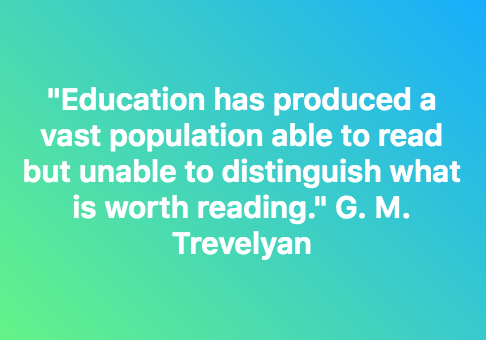
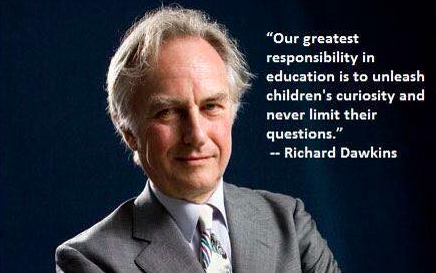
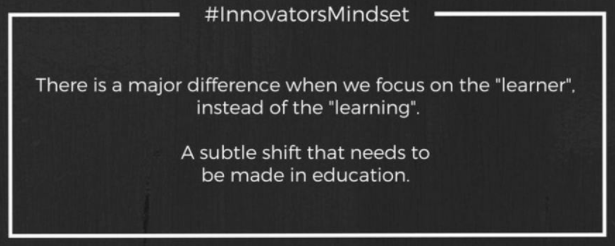
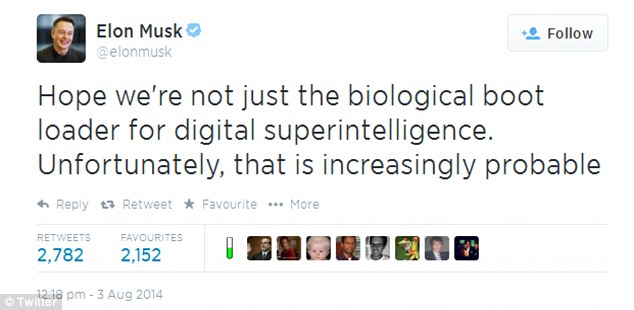

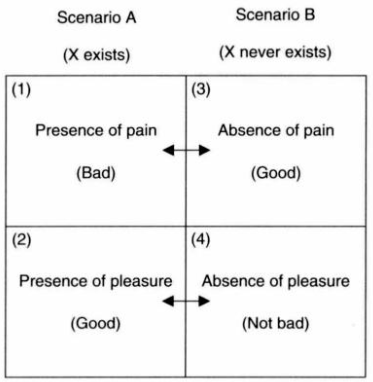
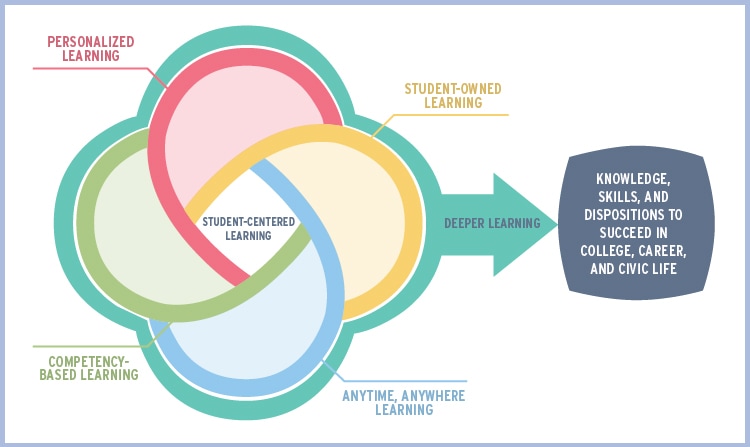


 RSS Feed
RSS Feed